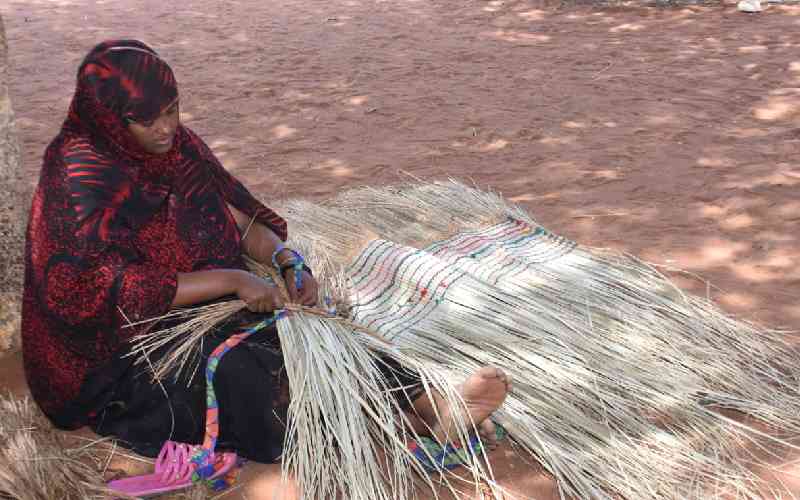By Mohamed Saman

Early morning in Qahira village Wajir East, Rukia Abdi comes back from the shop; a long walk in the scorching sun. She is happily received by her four children who are excited that today she is carrying goods home…some flour and vegetables for the evening meal.
Rukia is among the pastoralist communities of this region that have long relied on livestock for their sustenance and economic stability.
However, with the increasing frequency and severity of droughts, driven by climate change, herds of livestock have been decimated leaving many families struggling to make ends meet.
Recognising the urgent need for intervention, various non-governmental organizations, in partnership with the government, have stepped in with cash transfer initiatives designed to provide immediate relief and support long-term resilience.
Rukia says it was a life-changing moment after she was enlisted in a cash transfer program by the International Organization of Migration (IOM) in partnership with local organizations such as Wajir South Development Association (WASDA) and ALDEF funded by the United Nations Central Emergency Response Fund (UN-CERF) in Wajir County.

According to her, she has been using the funds to support her family and pay for her children’s education. She also started an income-generating business where she has a small shop apart from knitting Somali huts.
In the program, over 5,500 poor and vulnerable persons hard-hit by climate shocks receive a monthly capital ranging from Sh7,000 to Sh8,400 in three cycles.
Hundreds of families have received the multipurpose cash grant which they use to purchase food, water, and other needs amongst the affected communities in Northern Kenya.
“The cash grants give us hope, we have something to look forward to every month and this has really helped us in paying for school fees and also put food on the table,” said Rukia.
The cash transfer programs operate on a simple yet effective principle by providing vulnerable families with direct financial aid to meet their immediate needs.
These programs, which often use mobile money platforms, offer a lifeline for those who have lost their primary source of income due to adverse weather conditions.
With the financial support, families can purchase food, pay for medical expenses, and invest in alternative income-generating activities, such as small-scale farming or trading.
For residents like Asha Khalifow a mother of five in Tulatula, the cash transfers have been nothing short of transformative.

“The drought took everything from us but the cash support has helped us to buy food and start a small business of selling vegetables. It has given us hope and a way to survive,” said Asha.
Mohamed Ugas, an officer from WASDA says the prolonged drought in 2022 and the aftermath of late 2023 and early 2024 floods have caused a humanitarian crisis in many parts of northern Kenya leaving many residents in abject poverty.
Ugas said the cash transfer interventions are timely as they support the vulnerable communities.
While calling for more partnerships, Ugas says in addition to empowering individuals, the cash transfer programs have broader economic benefits for the community.
“Local markets experience a boost as recipients spend their funds on goods and services, stimulating economic activity. This injection of capital helps to stabilize local economies and supports community resilience against climate change,” he said.
Source: The Sunday Standard

Leave a Reply